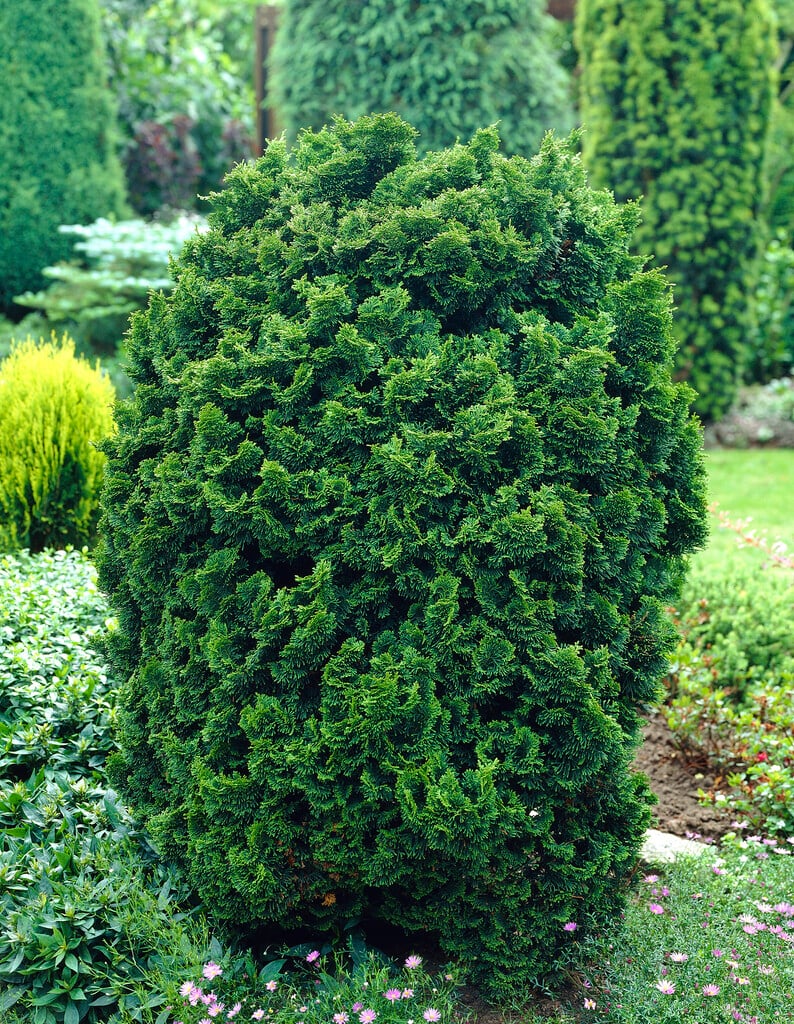Size
Ultimate height
Higher than 12 metresTime to ultimate height
5–10 yearsUltimate spread
0.5–1 metresGrowing conditions
Moisture
Moist but well–drainedpH
Acid, Alkaline, NeutralColour & scent
| Stem | Flower | Foliage | Fruit | |
| Spring | Green | |||
|---|---|---|---|---|
| Summer | Green | |||
| Autumn | Green | |||
| Winter | Green |
Position
- Full sun
Aspect
East–facing or South–facing or West–facing
Exposure
Exposed or Sheltered Hardiness
H6Botanical details
- Family
- Cupressaceae
- Native to GB / Ireland
- No
- Foliage
- Evergreen
- Habit
- Bushy, Columnar upright
- Genus
Chamaecyparis are evergreen trees, usually of narrowly ovoid or columnar outline, with much-branched sprays of small scale-like leaves, and small, globose cones; tiny red male cones are conspicuous in a few cultivars
- Name status
Correct
How to grow
Cultivation
Grows well in moist but well-drained soil. Tolerant of chalk soils but prefers slightly acidic soil
Propagation
Propagate by seed and semi-hardwood cuttings
Suggested planting locations and garden types
- Architectural
- City and courtyard gardens
- Cottage and informal garden
- Patio and container plants
- Low Maintenance
- Flower borders and beds
- Hedging and screens
Pruning
No pruning required but if used as hedging, trim twice a year to maintain shape
Pests
May be susceptible to aphids, juniper scale and shoot-boring moths
Diseases
May be susceptible to honey fungus and Phytophthora root diseases
Get involved
The Royal Horticultural Society is the UK’s leading gardening charity. We aim to enrich everyone’s life through plants, and make the UK a greener and more beautiful place.
